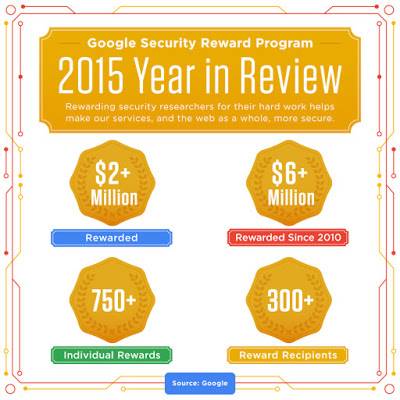| Hack A Chromebook for $100,000 |
| Written by Alex Armstrong | ||||||||||||||||||||||||||||||
| Tuesday, 22 March 2016 | ||||||||||||||||||||||||||||||
|
Google has doubled the reward payable for a persistent compromise of a Chromebook in guest mode. It has also introduced a new reward for bypassing Chrome's Safe Browsing download protection features. Google's existing rewards for Chrome hacks are unchanged from when we last reported on them and, together with the new reward in its final line, are outlined in this table.
[6] Landing a blacklisted test binary on disk where a typical user could execute it, on Mac or Windows. The file type on disk must lead to non-sandboxed code execution after minimal user interaction with the file.
However since Google introduced a reward of $50,000 for hacking a Chromebook no-one has made a successful submission - prompting Google to double the amount of money on offer to $100,000. This is available all year round with no quotas and no maximum reward pool for compromising a Chromebook or Chromebox with device persistence in guest mode (i.e. guest to guest persistence with interim reboot, delivered via a web page). This increased reward is a reflection of the fact that Chrome is getting harder to hack. It came out as the most secure web browser at last week's Pwn2Own. One attack on it failed and while another was successful it used a vulnerability that had already been reported.
More InformationRelated ArticlesGoogle Increases Maximum Bounty For Chrome Bugs Largest Payout Ever At Pwn2Own 2015 Chrome Hacked Twice at CanSecWest Chrome Safe In Pwn2Own Contest
To be informed about new articles on I Programmer, sign up for our weekly newsletter, subscribe to the RSS feed and follow us on, Twitter, Facebook, Google+ or Linkedin.
Comments
or email your comment to: comments@i-programmer.info |
||||||||||||||||||||||||||||||
| Last Updated ( Tuesday, 22 March 2016 ) |



